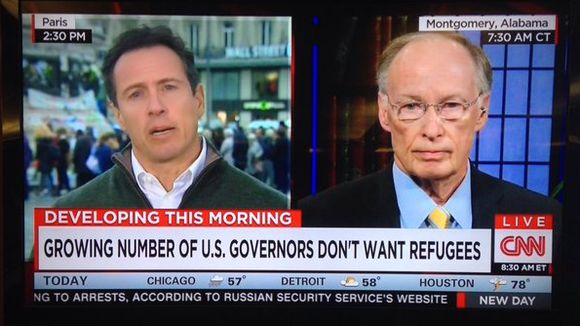The Economic Impact of Refugee Resettlement in the U.S.
by Holly Whitman
The Syrian refugee crisis has been dominating headlines all over the world for a long time now, and with good reason: The crisis is being called the “worst refugee crisis of our generation.” With the United States less than a year away from one of the most contentious and divisive Presidential elections in recent memory, the plight of these political refugees is steering the course of a great many economic, ethical and political conversations in this country.
Let’s put ethics aside for a moment and focus just on the economic ramifications of keeping the United States’ borders open to refugees. While the scope and implications of this particular refugee crisis are nearly unprecedented, we can still look to history for some valuable insight in answering an all-important question: Does it make economic sense to welcome refugees into the country?
Refugees in America: A Brief (Recent) History
What seems to get lost in our current conversations about Syrian refugees is a simple fact: The United States has always considered itself a safe haven for refugees fleeing war-torn areas across the world.
Consider this: In the 14 years since the events of September eleventh, the United States has welcomed more than two million political refugees from the Middle East and beyond. Think about that for a moment, because you won’t hear it from the political fringes who are working themselves into a frenzy over this latest wave of Syrian refugees.
The fact that we’ve welcomed so many refugees simply as a matter of course and heard nary a peep about it in a decade and a half should go a long way toward dispelling some of the more baseless rumors surrounding refugee policy in the U.S.
10 Thousand Human Lives
Let’s reach even further into the past for just a moment. Following the Vietnam War, 1.3 million Southeast Asians sought resettlement with the help of the U.N. High Commissioner for Refugees. 800 thousand eventually found a home in the United States.
In the U.S., the current conversation about refugees centers on just 10 thousand human lives: a tiny fraction of the people we welcomed after either Vietnam or 9/11, and about half the number that settled in Munich in recent weeks.
Before we get to the potential economic impact these refugees might have on the United States, let’s dwell for a moment on what they’re fleeing:
Between 2012 and 2013, the Syrian economy declined by more than 30 percent per year.
Success in Cleveland, Denmark and Beyond
In 2012, refugee service agencies in Cleveland, Ohio spent about 4.8 million dollars helping refugees establish themselves and become assimilated into American culture. By any objective measure, that’s a drop in the bucket when you consider that Cleveland’s 2015 budget weighed in at a stunning 131.6 billion dollars.
Things look even better when you consider what the city earned back by welcoming these refugees.
According to Chmura Economics and Analytics, refugees in Cleveland netted the city a 48-million-dollar return, since refugees “are more likely to be entrepreneurial and enjoy higher rates of successful business ventures compared to natives.”
Already, it’s abundantly clear that reality is a far cry from the jingoistic rhetoric we’ve been hearing from the Political Right — outrage fueled, at least in part, by a misguided faith in American exceptionalism. The truth is that refugees are not just hard working, but very likely to succeed even in our troubled-but-improving economy.
The report went on to point out that annual earnings among refugees in the U.S. has handily outpaced immigrants of other kinds. An earlier study provided similar findings in 2004: Refugee immigrants work four percent more hours, earn 20 percent more in income, and develop their English language skills 11 percent faster than economic immigrants.
But let’s jump across the pond for a moment and see if these trends hold true elsewhere. A 2014 study carried out in Denmark also showed that refugee immigrants had a positive economic impact overall.
Even with all of these success stories, fairness dictates that we acknowledge where refugee immigrants have taxed less affluent countries. In Jordan, for example, refugee immigrants cost the country a total of 2.4 billion dollars (a 5.8-billion-dollar gain against a cost of 8.2 billion dollars), and strained the country’s limited supply of potable water.
A Moral Obligation
That is the message here: Troubled countries like Jordan shouldn’t have to pick up the slack left by the United States and other world powers. The world’s affluent countries don’t just have a moral obligation to give aid where it’s needed, they may well realize economic gains in the process. As some politicians rightfully point out, the United States is the wealthiest country in the history of the world and we can clearly do our part wherever and whenever it’s needed.
This is the sort of thing that used to go without saying: We should carry our neighbor’s burden within reason. If all else fails, we can fall back on reminding ourselves that the United States is a nation built by immigrants, without whom none of us would enjoy the prosperity we have today.
Holly Whitman is a writer and political journalist originally from the UK but now based in Washington DC. You can find more of her writing at Only Slightly Biased or on Twitter at @hollykwhitman.

















